Yes, you can make apple cider vinegar in a juicer – here's how
A splash of apple cider vinegar can liven up sauces, stews, and marinades, and you can make more for less in a juicer.

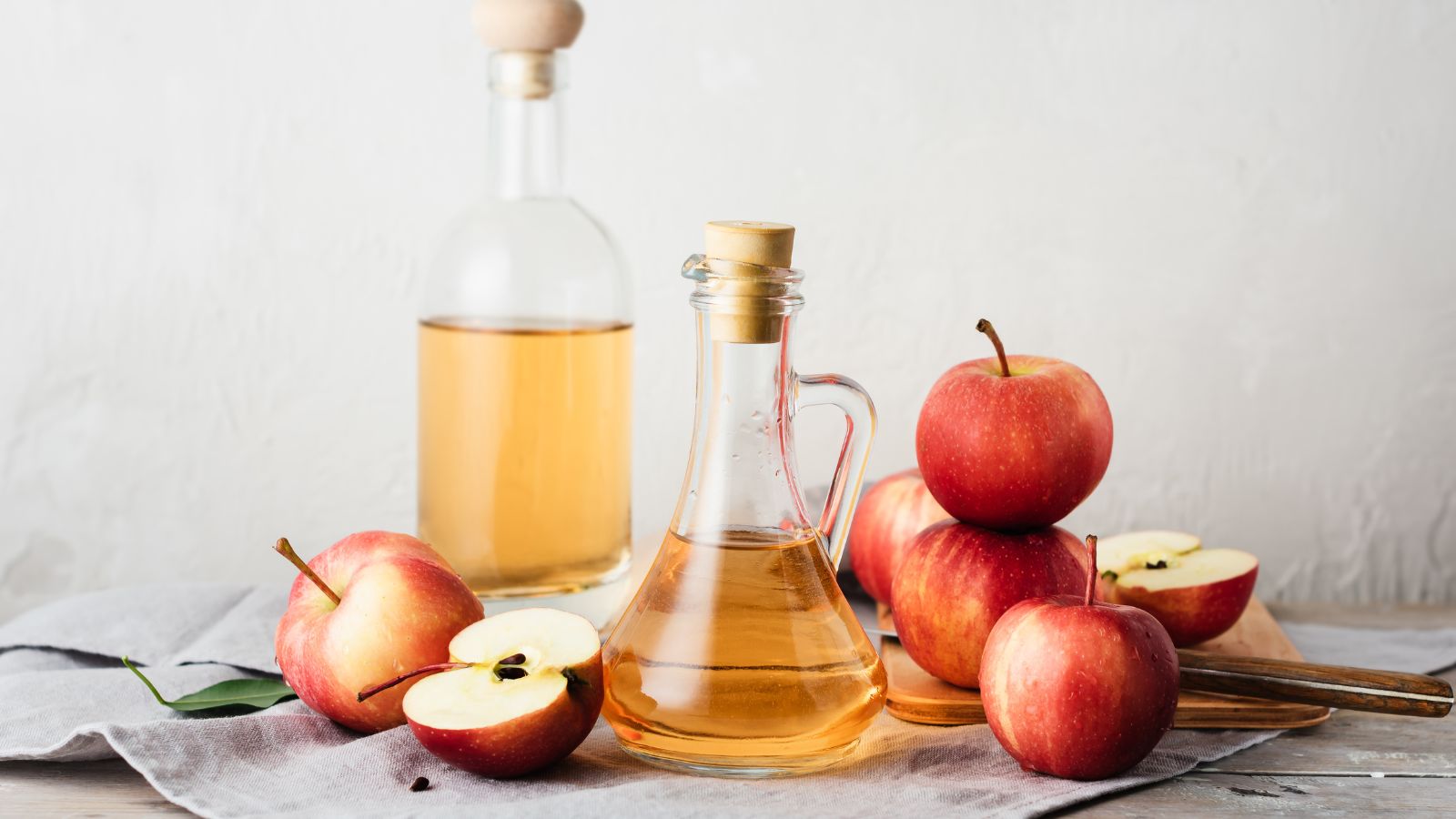
Design expertise in your inbox – from inspiring decorating ideas and beautiful celebrity homes to practical gardening advice and shopping round-ups.
You are now subscribed
Your newsletter sign-up was successful
Want to add more newsletters?

Twice a week
Homes&Gardens
The ultimate interior design resource from the world's leading experts - discover inspiring decorating ideas, color scheming know-how, garden inspiration and shopping expertise.

Once a week
In The Loop from Next In Design
Members of the Next in Design Circle will receive In the Loop, our weekly email filled with trade news, names to know and spotlight moments. Together we’re building a brighter design future.

Twice a week
Cucina
Whether you’re passionate about hosting exquisite dinners, experimenting with culinary trends, or perfecting your kitchen's design with timeless elegance and innovative functionality, this newsletter is here to inspire
Apple cider vinegar is an essential ingredient for any home cook. It’s sweet, sour, and highly versatile. A dash of apple cider vinegar can brighten up a hearty stew or deepen the flavor of a vinaigrette. You can even use it as a food preservative to pickle cucumbers or zucchinis.
While it’s quick and easy to buy a bottle of apple cider vinegar from the store, it’s even better to make your own. Homemade apple cider vinegar can be far healthier than the store-bought stuff, thanks to an abundance of gut-friendly bacteria. As sauces go, it’s an environmentally-conscious and economically-conservative condiment.
I’ve consulted executive chefs and expert nutritionists, who all agree that making your own apple cider vinegar can boost your health and save you money. With one of the best juicers, you can make enough to last the whole of hosting season.
What’s the best way to make apple cider vinegar in a juicer?
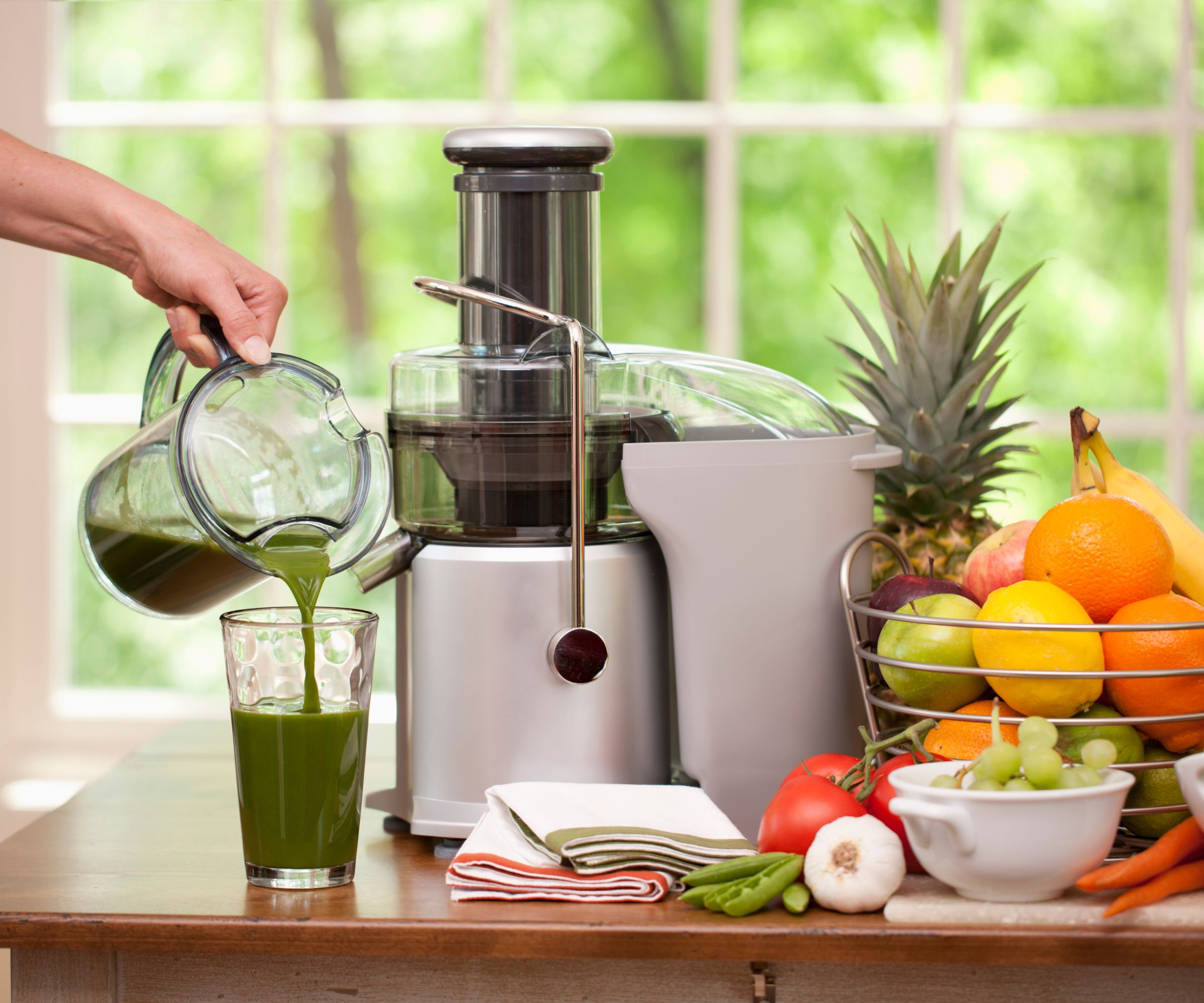
Before you can get juicing, you’ll need to pick your produce. All you want are some apples, some sugar, and a little bit of yeast.
Chef Shane Graybeal recommends a trip to your local farmers’ market to choose your apples. To make a balanced juice, you should look for apples with a variety of tastes and textures. Shane suggests 'one sweet apple, one tart apple, and a funky apple'.

Shane is a culinary professional with 20+ years in the industry, specializing in modern American cuisine with an emphasis on seasonality and local products. He leads the team at Fielding’s in Bozeman, MT, and is currently working on a fermentation program.
It’s important to avoid supermarket apples, says Shane: 'they can have a wax applied to them, and that wax creates an anaerobic environment, killing any yeast on the surface'. Without yeast, your juice won’t ferment or turn into vinegar.
Once you’ve picked your apples, Shane advises you cut them into wedges and remove the seeds, leaving the skins on. Just throw the wedges into your juicer and juice. Then add a little sugar and brewer’s yeast, which you can easily find on Amazon, before pouring your juice into a glass jar with a towel covering the top.
Design expertise in your inbox – from inspiring decorating ideas and beautiful celebrity homes to practical gardening advice and shopping round-ups.
The juice should take around two weeks to ferment. According to executive chef Catherine Snowden, 'vigilance during the fermentation period is crucial. You should regularly inspect the container and contents for any signs of mold or unusual, unpleasant odors'. You should stir and taste the liquid every few days until it’s acidic enough for your liking.

Catherine is a highly sought-after executive chef, as well as the editor-in-chief of her own cooking site, fascinatingsky.com. Her day-to-day desire is to help everyone to live healthy and happy lives. That’s why she shares healthy foods and cooking tips to incorporate into your daily routine.
What are the benefits of making apple cider vinegar in a juicer?
Homemade apple cider vinegar can be far healthier. Catherine notes that when you juice your own apples, you 'preserve valuable probiotics that promote digestive health'. You can also avoid the excess sugars, additives and preservatives that are so common in commercially-produced vinegars. Many nutritionists have linked a diet rich in processed foods to a range of chronic diseases and health conditions.
Making your own apple cider vinegar is not only better for your body, but better for the planet, too. The best juicers can squeeze the goodness out of the whole apple, including the peel and the core. The right juicer can create delicious vinegar while helping you to reduce food waste, says Catherine.
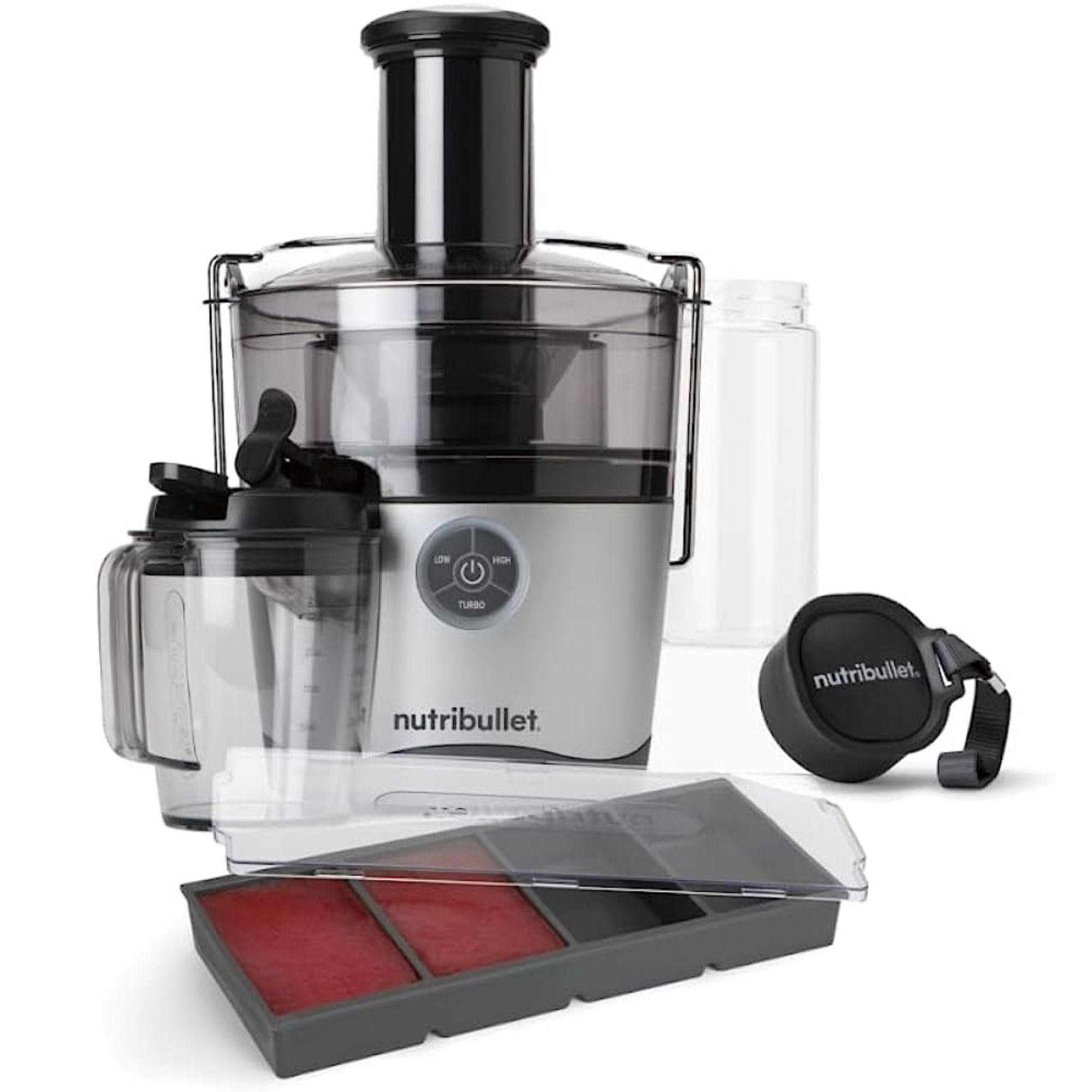
Powered by a 1000W motor and armed with an extra-wide feed chute, this centrifugal juicer can take on all types of produce.
You can find more detail in our NutriBullet Juicer Pro review.
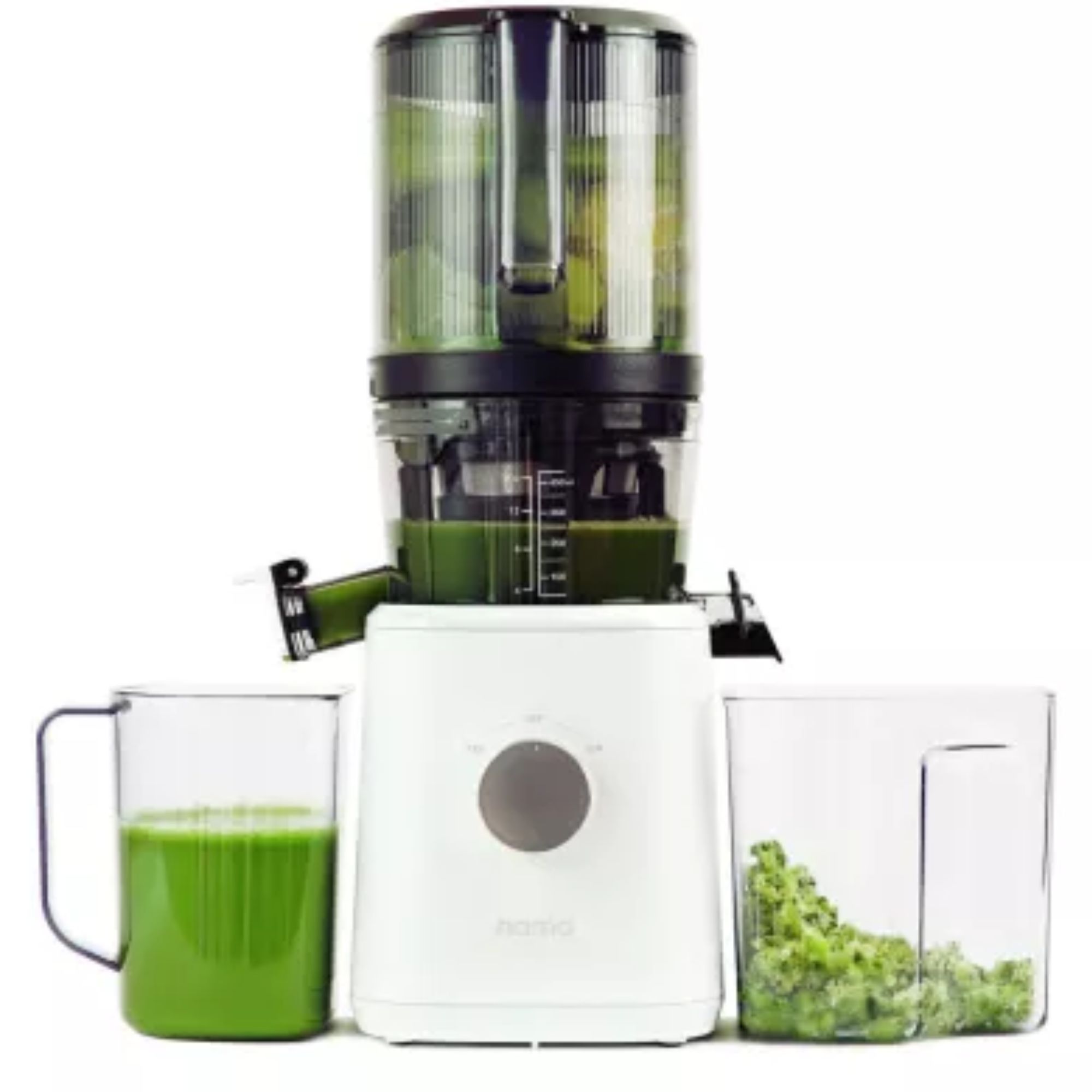
For hands-free juicing, the Nama J2 is your best bet. All you need to do is load ingredients into the pitcher and press 'start'.
You can find more detail in our Nama J2 Juicer review.
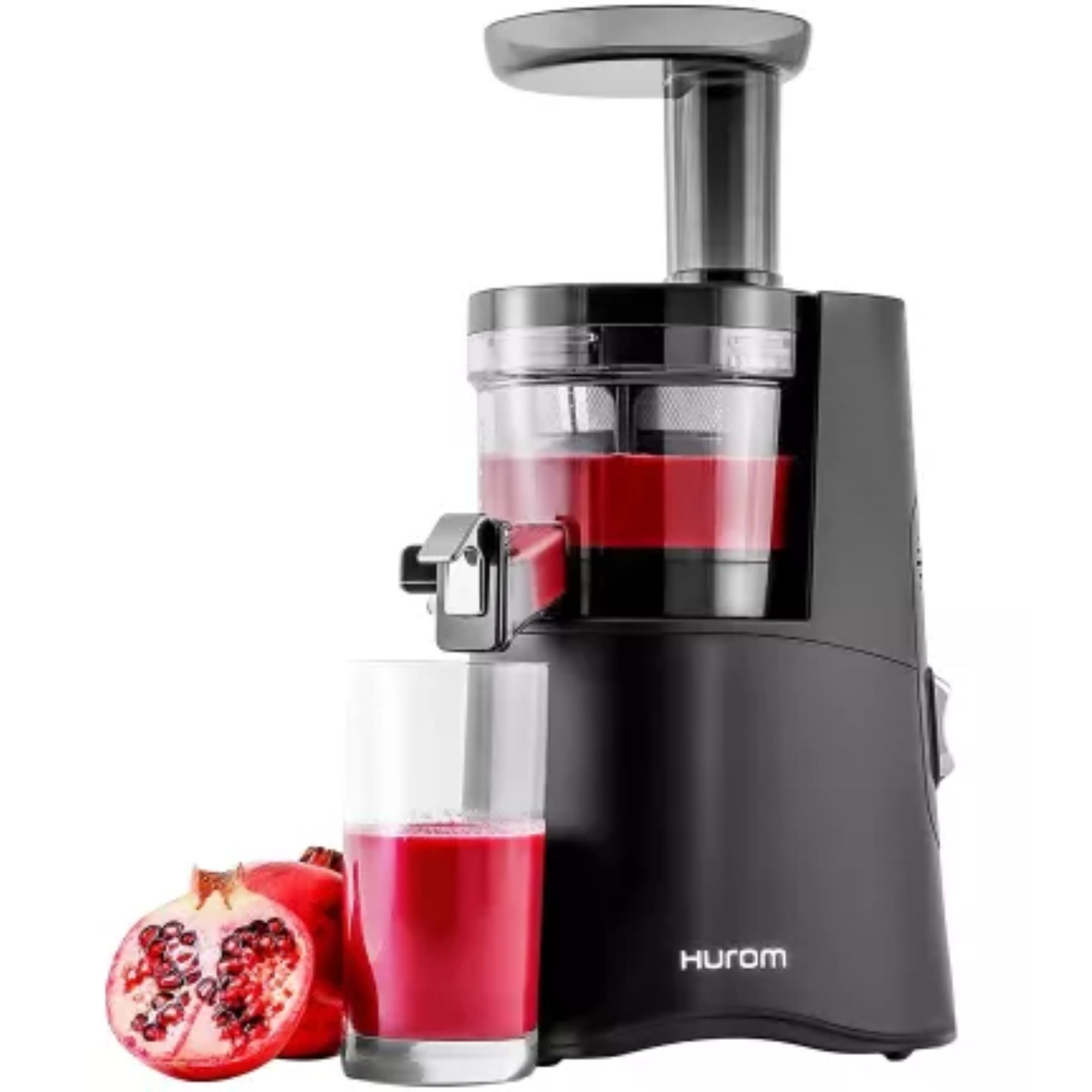
This juicer operates at just 43 RPM to ensure that ingredients are pressed thoroughly, keeping the good in and the grit out.
There's more information in our Hurom H-AA review.
It’s also better for your wallet. The cost of bottle after bottle of store-bought vinegar soon stacks up. When I spoke to Madhuram Prabhakar, food blogger and founder of Eggless Cooking, she told me that 'a bushel of apples can produce enough vinegar to last for a year'. While that might be overkill, making your own at home can certainly save you a little money. If you have apple trees in your yard, it’s totally free.

Madhuram entered the blogosphere as a novice 15 years ago, but with passion, patience, and perseverance, she carved a niche for eggless baking. Today, she is a pioneer in the vegan cooking space, and features a treasure trove of healthy recipes on her blog, Eggless Cooking.
What are the downsides of making apple cider vinegar in a juicer?
When you buy a bottle of apple cider vinegar from the store, it’s hard to imagine the time and effort that went into making it. It’s not just a matter of juicing and waiting: there’s all the cleaning, too. Madhuram warns that 'home preparation can be messy, and the cleanup efforts after fermentation may be taxing. Fruit flies can also be challenging to keep away'. If you’d rather not deal with sticky spills or bothersome bugs, then making apple cider vinegar in a juicer might not be for you.
When you buy commercially-produced apple cider vinegar, you know that it’s been tested and regulated for sale. When you make your own, it’s your job to uphold high safety standards. Jess Scott, founder and owner of Youth Juice, knows that 'the fermentation process for homemade apple cider vinegar can be unpredictable. There’s a risk of harmful bacteria or yeast growth, potentially causing health issues. Additionally, if the pH level isn’t controlled, it may be unsafe for consumption'.

Jess is the founder and owner of Youth Juice, a juice company dedicated to promoting health and sustainability. With a background in health management and years of experience in the food catering business, Jess brings unique insights and expertise to her role. Her passion for healthy living is reflected in Youth Juice’s use of the freshest and highest-quality ingredients in their juices, which are packed with vitamins, minerals and antioxidants.
As long as you stir your vinegar every few days, and test its acidity with a litmus strip or a pH meter, you should be fine. You’re looking for something mildly acidic, measuring around 2 to 3 on the pH scale, which will add some zing to your soups and sauces.
How does homemade apple cider vinegar compare to store-bought?
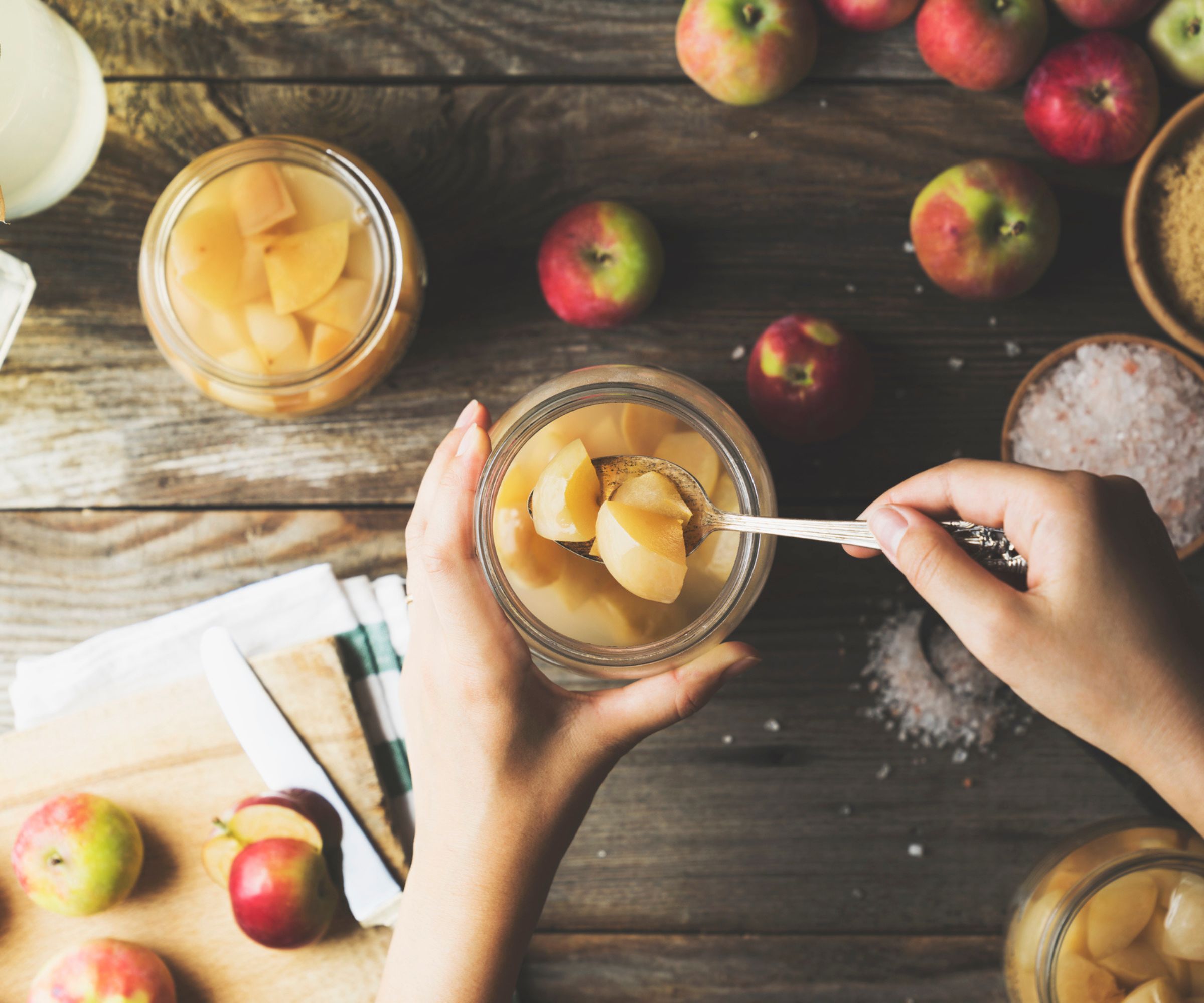
In terms of taste, our experts agree that it’s no contest: homemade apple cider vinegar is far more flavorful. Nutritionist and food editor Norah Clark explains that 'homemade apple cider vinegar tends to have a fresher, more complex flavor, and it may contain more beneficial compounds due to the fermentation process.' That means it tastes good and does good, too. Apple cider vinegar contains acetic acid, which can kill harmful bacteria, as well as natural probiotics, which can boost your immune system.
Norah notes that 'store-bought vinegars often go through pasteurization, which can kill some of these beneficial elements'. That’s true, though the pasteurization process can also kill some of that harmful bacteria.
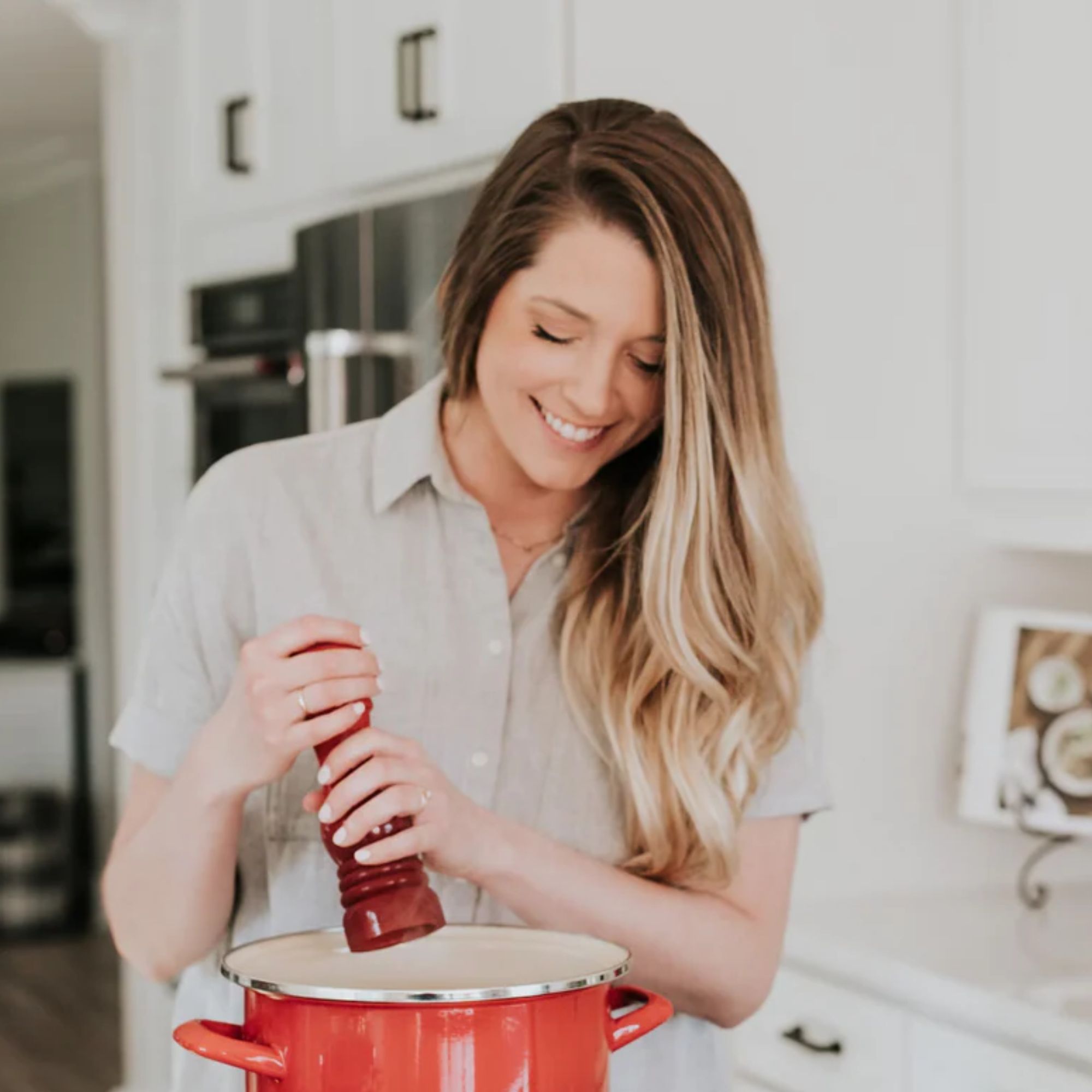
Norah is an experienced chef and qualified nutritionist who has worked for numerous luxury hotels and restaurants worldwide. Now, she’s editor-in-chief of Boyd Hampers online magazine. Her advice has been featured on Good Housekeeping, Pinch of Yum, and Parade.com, as well as our own Homes & Gardens.
Just one safety caveat: Madhuram Prabhakar advises that homemade apple cider vinegar 'should be used within a year as it does not have the same shelf life as commercial vinegar'. While a year might not sound like a long time, you’ll soon get through your stock. A splash of apple cider vinegar can liven up sauces, stews and salad dressings.
Homemade apple cider vinegar FAQs
Will homemade apple cider vinegar help me lose weight?
It can do, yes. When you make apple cider vinegar at home, you can reduce the amount of excess sugars, additives and preservatives in your vinegar. This promotes good gut health, which may boost your metabolism.
When does homemade apple cider vinegar go bad?
It’s best to use your homemade apple cider vinegar within the year. This is because it contains a lot of natural bacterial compounds, which begin to die around the 12-month mark.
What else can I make in a juicer?
Many of the best juicers are multifunctional machines that double as smoothie blenders and ice cream makers. The best juicers can tackle soft and firm produce, as well as hot and cold ingredients, to make all sorts of smoothies, soups, and sauces.
Our verdict
It’s easy to make your own apple cider vinegar in a juicer: all you need to do is prep your produce and press ‘start’. The biggest issues are the two-week fermentation process and the potential for sticky spills and splatters.
You can solve these problems with a little preparation. As long as you juice your apples ahead of time, take care when pouring your vinegar, and stock up on some inexpensive litmus strips to test acidity, you should have plenty of rich and flavorful sauce for a fraction of the store price.

Emilia is our resident sleep writer. She spends her days tracking down the lowest prices on the best mattresses and bedding and spends her nights testing them out from the comfort of her own home. Emilia leads a team of testers across America to find the best mattress for every sleep style, body type, and budget.
Emilia's quest to learn how to sleep better takes her all around the world, from the 3Z mattress factory in Glendale, Arizona to the Hästens headquarters in Köping, Sweden. She's interviewed luxury bedding designers at Shleep and Pure Parima, as well as the Design Manager at IKEA. Before she joined Homes & Gardens, Emilia studied English at the University of Oxford.